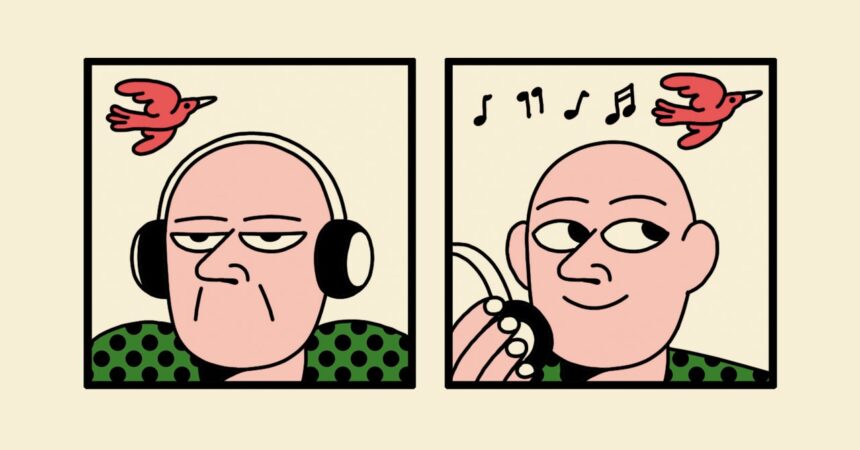Unlocking Happiness: A Journey Through Habituation and Awareness
As 2024 concludes, many individuals take the opportunity to reflect on the past year and contemplate the improvements they wish to make in 2025. Among the most prominent themes during this period of reflection is the paradox of happiness—in which many find themselves surrounded by positive elements such as stable careers, loving families, and comfortable homes, yet still feel a lack of daily joy. This emotional discrepancy can often be attributed to a psychological phenomenon known as habituation, which can lead us to overlook both positive and negative elements of our lives.
Understanding Habituation
Habituation is a natural response of the brain, defined as the process where responses to a constant stimulus diminish over time. It’s a survival mechanism; by becoming less aware of frequent stimuli, we can focus on potential threats or novel experiences. For instance, when entering a coffee shop, the aroma of freshly brewed coffee may be intoxicating at first, but within a short span, that smell fades into the background, as our olfactory neurons adapt to it.
This gives rise to a crucial challenge: regaining sensitivity. We need to be attentive not only to the joys that surround us but also to the irritants we often ignore, like tensions in relationships or workplace stressors. To break this cycle of desensitization, we need practical strategies to help us feel more alive and engaged with our experiences.
Breaking Up the Good
Incorporating wisdom from economist Tibor Scitovsky, we can find a key to enhancing our life satisfaction: “Pleasure results from incomplete and intermittent satisfaction of desires.” Research has shown that we often appreciate enjoyable experiences more when they are savored rather than consumed all at once. Think about listening to your favorite song—enjoyment is usually higher when you take brief pauses rather than listening to it on repeat.
This principle can be applied to myriad enjoyable aspects of life, whether it’s binge-watching a new Netflix series, indulging in dessert, or savoring time with a loved one. By pacing ourselves, we stimulate dishabituation—a reinvigoration of joy. In 2025, consider space and breaks as essential parts of enjoying luxuries, rather than overwhelming yourself with continuous access.
Swallowing the Bad Whole
Conversely, when it comes to unpleasant tasks—whether chores, administrative emails, or tough conversations—research indicates that enduring them in a continuous block is preferable. Studies have shown that listening to a painful noise, like a vacuum cleaner, is less distressing when experienced without breaks as opposed to being interrupted by silence. The initial discomfort dissipates over time, making it easier to complete the task at hand.
This approach not only minimizes stress but encourages one to tackle difficult tasks head-on rather than prolonging anxiety with repeated delays.
Experiments in Living
Many everyday aspects of life quietly contribute to stress yet often go unnoticed. Just like background noise that we forget until it stops, the small irritants we accept as “normal” can greatly impact our well-being. To pinpoint these influences, consider conducting occasional experiments in living.
A study highlighted in a recent article explored the effects of social media on personal well-being. Participants paid $100 to quit social media for a month reported significantly less stress and increased happiness levels. These participants were astonished by the negative impact the constant online presence had on them.
As we step into 2025, consider eliminating, or even just reducing, certain elements from your daily routine. Whether it’s limiting phone time, refraining from digital distractions, or introducing a new hobby—a more conscious approach can help gauge their impact on your life. By measuring and assessing their effects, you can identify the sources that bring joy and purpose versus those that contribute to feelings of discontent.
Final Thoughts
The journey to a more fulfilling existence involves recognizing the powerful effects of habituation in our daily lives—both for the good and the bad. By breaking up pleasurable experiences and swallowing the difficult tasks whole, while also intentionally experimenting with the elements of our routines, we can foster a greater appreciation for what brings joy and a newfound awareness of what we can change for the better.
Embrace 2025 as a year of exploration, sensitivity, and heightened awareness, leading you to a more intentional and fulfilling life.










